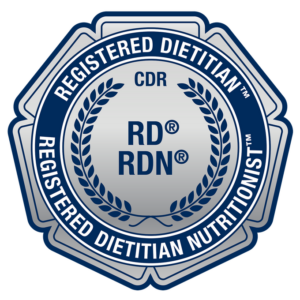Why can’t I lose weight? Is it my metabolism? Do I have a slow metabolism? These are questions I get often. Take a moment to review what is metabolism? In this 2 part series, this article will explain what is metabolism and how you can lose weight.
Overweight and obesity are so common today that two-thirds of adults and one-third of children experience these in the United States right now. That’s hundreds of millions of people, so please don’t feel alone. Overweight and obesity can increase the risk of many health problems like type 2 diabetes, heart disease, and some cancers. Achieving a healthy weight, eating nutritious foods, and being physically active can help improve your health and reduce your risks.
Is it as Simple as Eat less, Move More?
Weight loss is very challenging for many reasons:
- There is an abundance of food available
- Eating isn’t just something we do for sustenance; it’s gratification, a social activity, and sometimes even a reward
- Technology has contributed to a much more sedentary lifestyle
- While working from home, the number of daily steps has declined
- Reducing calories voluntarily is hard and challenging to change habits
- Many diets work in the short term, but fail later on because they’re simply unsustainable.
- After losing weight, maintaining weight loss is extremely difficult. This is particularly true for women after menopause.
Let’s review a few reasons that impact metabolism and weight.
What is Metabolism?
What is metabolism, and how can you lose weight? Let’s review the categories of metabolism:
- Basal Metabolic Rate (BMR) – The amount of energy (calories) your body uses to perform bodily functions, including sleep and breathing. Your BMR, or metabolism, accounts for two-thirds of calories your body burns each and every day.
- Resting Metabolic Rate (RMR) – RMR accounts for up to 50-75% of total caloric expenditure and is the minimum metabolic rate required to stay alive and functioning, even at rest.
- Thermic Effect of Food (TEF) – TEF refers to the number of calories burned during the digestion and processing of food/beverage.
- Thermic Effect of Exercise (TEE) – TEE is the increase in calories burned during exercise.
- Non-exercise activity thermogenesis (NEAT): NEAT refers to the number of calories required for activities other than intentional exercise. Examples of NEAT activity include fidgeting, walking around your home, doing dishes, doing laundry, or light activities such as gardening, mopping, or sweeping.
Your metabolism is influenced by several factors including:
- Body composition – people who are bigger, “big boned” or more muscle mass tend to burn more calories at rest.
- Gender – sorry ladies! But yes, because men are typically bigger and have more muscle, lending them a higher metabolism.
- Age – Bones are growing until early adulthood which increases metabolism in younger-aged people.
- Maintenance of bone density and muscle mass – these naturally decline with age, as fat mass tends to increase.
- Medical conditions that could slow metabolism – Cushing’s syndrome, polycystic ovarian syndrome (PCOS) or hypothyroidism (underactive thyroid) to name a few.
So how does metabolism impact weight. Let’s review how metabolism plays a role in the calories in versus calories out.
How Can You Lose Weight?
Your weight is based on several factors, some are controllable and others are not. For example, genetics, family history, and hormones can impact your weight. But there’s not too much you can do to significantly change those.
On the other hand, how much and what you eat, medications, stress, and how much sleep and physical activity you get also contribute to weight. And, are a bit more controllable.
A slow metabolism may be one factor that influences weight, but it’s not the only one. How your body processes what you eat or drink and how active you are also play roles in your weight. The process of digesting food burns calories. About 10 percent of the calories in carbohydrates and protein are used to digest them. Plus, the amount of physical activity you do also accounts for some of the calories you burn every day.
While some people may gain or lose weight easier than others, in general, the balance of your “energy equation” counts for your weight. That is, the amount of energy (calories) you take in minus the amount of energy (calories) you burn can determine whether you gain or lose weight.
What are the next steps?
Before selecting and starting a weight-loss program, speak to your healthcare provider, especially if you have underlying medical conditions. Be very wary of “quick fixes” or influencers. Do ensure that a program promotes long-lasting health benefits and sustainable lifestyle solutions for weight loss.
Stay tuned for part 2 in this series as I take a deeper dive in the top six strategies for weight loss/maintenance. Here’s a sneak peak:
- Set specific, realistic and forgiving goals
- Ditch the “diet” – focus on overall health over the number on the scale
- Explore new ways to eat – my #1 tip – CHEW your food (your gut will thank you!)
- Exercise versus activity – this is important if you’re still working from home.
- Reward your successes
- Persevere – It can be a lonely journey – seek accountability from an experienced healthcare provider
Final Thoughts about Metabolism and Weight
While weight is but one measure of health, it is a big concern for many people. Losing weight is not easy. Your metabolism is influenced by many different factors—some you can’t control (e.g., your genes) and others you can (e.g., what and how you eat).
Struggling with your weight goals can impact your metabolism if you have cyclic weight changes, increased stressed and imbalanced eating habits. For a nutritious approach to metabolism and your weight, consult with a Registered Dietitian, Nutritionist who can work with your concerns, medical history and any dietary restrictions.
While you research your next health plan, start with this free e-book on the Nutrition Myths and Facts.
Get to know you call with Laura Cordero
When was the last time someone listened to you? Really listened and provided active feedback. The best way to see if we are a good fit is in a free introductory discovery session.


